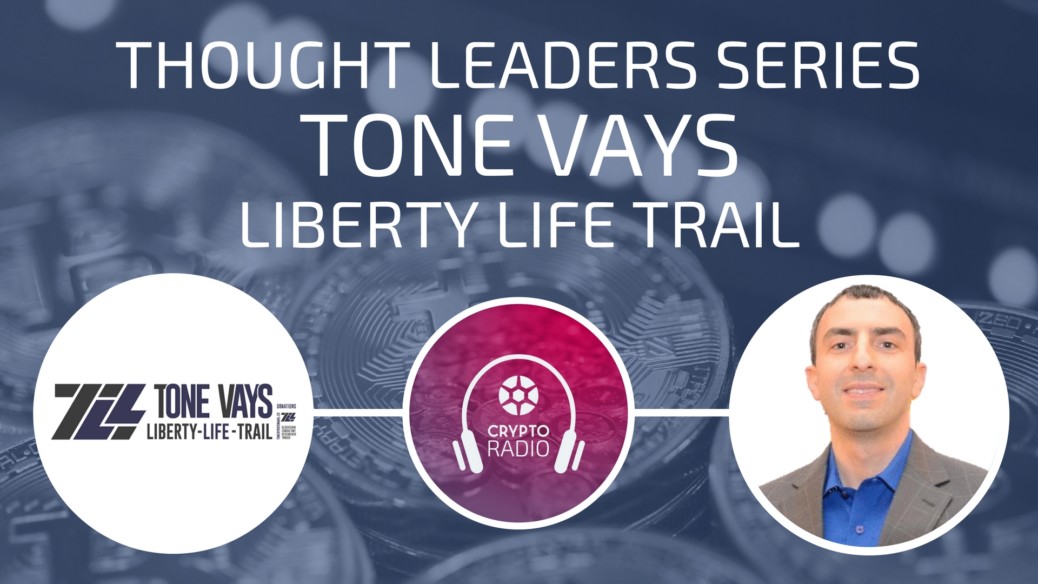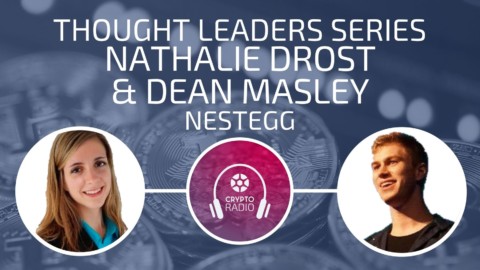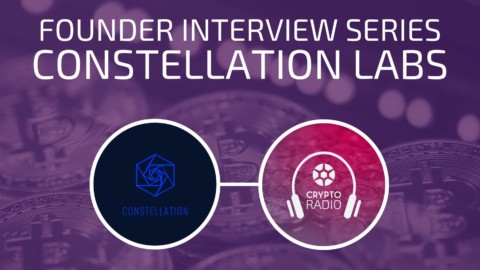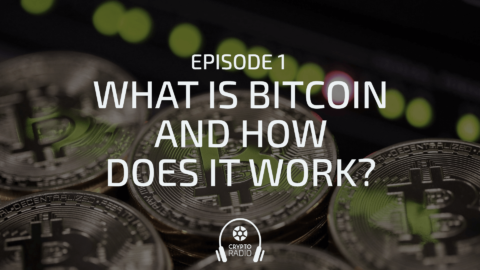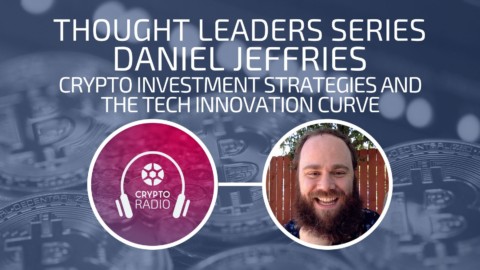Podcast: Play in new window | Download
Chris: Hey crypto world, welcome back to our thought leaders series. Today, Mike, Euvie and I are interviewing Tone Vays. Tone, in case you don’t already know, is a Bitcoin consultant, researcher, and trader. He got involved in the crypto [00:01:00] currency world in 2013 after working on Wall Street for almost 10 years. He is now an independent content creator and maintains his website, Liberty Life Trail, on his YouTube channel and on World Crypto Network. Tone is known for critiquing anything that is not Bitcoin, thus making him what many refer to as a Bitcoin maximalist. In this episode we got deeper into discussing why he considers most alt coins a short-term bubble.
We also talked about the regulation of blockchain, the broader influence of [00:01:30] governments, about an economic freedom, and dove deep into what would be the best use cases for blockchain in the future. This was a lively conversation to say the least and we hope you enjoy it as much as we did. For all resources that we mentioned in this episode, check out the show notes at cryptoradio.io/tone. Now, let’s get to it.
Euvie: This episode was brought to you by bitguild.io. Bitguild is a new gaming platform build using blockchain technology. Their mission is to redefine their relationship between [00:02:00] gamers and game developers. On the Bitguild platform, gamers maintain full ownership and control of their virtual items, which are stored on the blockchain. They can transfer items and progress between compatible games and they can make in-game transactions safely and cheaply and sometimes free. Developers who join the platform will get a direct link to an established player base, the strong community and a network of like-minded developers building on the same platform.
Developers will also have the potential for direct game develop of funding from Bitguild. The Bitguild token sale [00:02:30] has started on March 15th and will go until April 5th 2018 with a soft cap of 5,000 Eth and a hard cap of 14,062.5 Eth. The official token name is Blat. At the time of this recording they’ve already hit their soft cap. If you want to find out more, go to cryptoradio.io/bitguild. Hi Tone, thanks for coming to the [00:03:00] show with us today.
Tone: Thank you, glad to be on.
Euvie: I met you in Singapore and quite enjoyed your talk. You’re known in the space for being quite critical of anything that isn’t Bitcoin, can you give us a bit of a background of how you came to that conclusion and just in general your background with trading?
Tone: Sure. Those two are completely independent. I guess the easy one is my background with trading. I’ve worked on Wall Street for about 10 years. While my actual job on Wall Street surrounded risk analysis and [00:03:30] helping to build risk models, my passions and my interests have always been trading. I’ve studied it for a while, I’ve always traded what I could during none-busy seasons. Eventually I quit my job to become a trader.
What happened as I quit my job to become a trader in 2015 full-time, I was doing some content in the crypto space, speaking at a conference here and there, appearing on a podcast here and there, and that [00:04:00] slowly turned into an actual lifestyle of me being a content creator, being interviewed, speaking at way more conferences. And my niche became educating people about trading because of all my experience and the professionalism of trading because of how I used to do it, even on my own not for an employer.
I really liked Bitcoin almost rom the start, even though I didn’t actually get involved until 2013, [00:04:30] and I didn’t get involved publicly until 2014 because I saw something really innovative and Bitcoin. I saw that you can take the creation of money away from the governments. I found that really fascinating. The other properties of Bitcoin that really stood out for me was the fact that for the first time in human history you had a valuable asset that is just unconfiscatable by someone with a bigger gun. [00:05:00] Humans have never had that before.
Everything we’ve ever owned has always had the ability of being confiscated. Bitcoin provided that asset, assuming it remains technologically stable. Another thing that Bitcoin provided was the ability to transfer something of value, in this case Bitcoins themselves, to anyone in the world without a middle man creating this censorship resistant value transfer. These were the innovative properties of Bitcoin [00:05:30] and all of these other alt coins that try to compete with Bitcoin, they just don’t have anywhere near the technological expertise and the 100 to 500 very smart developers coding additional innovation on top of it. It’s all just things on paper trying to explain how bad Bitcoin is and how good their coin is, even though in reality it’s completely not true.
[00:06:00] Now, this is very different than the ICOs and things like Ethereum, which itself was an ICO. I consider that a whole other class of things. Even though these projects claim that they’re creating some kind of innovation, I also don’t see how that can possibly be true because all they’ve done is change the way they get money from other people for their project. Prior to this whole ICO boom, you had to get money for [00:06:30] your idea from qualified investors, either rich people or VCs.
Someone that will A, hold you accountable, B, will demand a significant chunk of equity and return, or C, has money to lose in case your project doesn’t go very well. All these ICOs did was change the way they get money in the door and, in my opinion, they’re all unlicensed, unregistered securities getting money from unqualified [00:07:00] investors. Even if on paper they claim that they will build all of this innovation, it’s just words on paper. I don’t think there’s all that much competency in attempting to build these projects. A lot of times I even disagree with their ideas but the reason why it feels like there’s all this innovation happening is only because they’re now getting a bunch of speculator value from people that are nowhere near qualified to give them that money.
Euvie: Do you think that [00:07:30] it might just be early in the space and that it’s only been a few years since Ethereum got launched, and it normally takes a bit more time than that to develop things and to figure it out. Especially with Ethereum, it has quite a large developer community.
Tone: It does have a large developer community but that doesn’t mean that those developers are technologically competent. I have had numerous conversations with proven competent developers and they all [00:08:00] laugh at the technology behind Ethereum, and they all pretty much convinced, to them it’s a fact that Ethereum does not even have a chance to be technologically stable for the long-term. Now, of course, anything can happen. There was a small chance that they can pull it together. But the consensus amongst the people that I trust and their technological understanding of blockchains, it’s pretty clear to me that Ethereum is, just as they are, a [00:08:30] short-term creating this speculative bubble based on unsustainable technology.
In addition, I still think that Ethereum has a giant regulatory risk like any other ICO. What happens if US regulators or even European regulators, and other first-world regulators all come to the conclusion that Ethereum was launched as an unlicensed, unregistered security. That mean anyone involved in the creation of [00:09:00] Ethereum would face serious legal risks. What does that mean for every project that tried to mimic Ethereum? I can see total confidence lost in that concept.
In addition, I have debated the fact that the world doesn’t need decentralized smart contract. The reason why decentralization exists is to prevent censorship. Now, Bitcoin was innovative in a way that it brought decentralization [00:09:30] to the idea of value transfer. Because anytime one person paid another person for anything other than handing them physical cash, which the government tries to eliminate every day and were probably eliminated already if they could, outside of that every single payment we ever make goes through a middle man and is, in a way, censored.
When it comes to contracts, your contracts are not being censored. In fact, the government encourages contracts [00:10:00] because contracts provide economic activity within the country, making that country richer and more prosperous. There is no actual censorship going on in contract law and contracts in general other than the payment for those contracts, which Bitcoin solved if you need that to be decentralized. Also, if you’re doing a contract on something that solicit and you don’t want the government knowing what that contract is then sure, [00:10:30] decentralization is very useful for you. But that is a very small use case.
Also, if you’re doing some kind of business and a contract with a country that your country isn’t going to be happy about, again, that’s a very small niche case where decentralizing the contract itself makes sense, but trying to convince the world that your contract for, let’s say, a smart lock to open your apartment by a stranger when your not home, that contract needs [00:11:00] to be calculated and recalculated every five minutes for the rest of time. There needs to be a copy of this contract of one person entering another person’s house on hundreds of thousands of computers because, God forbid, the history of that entry ever gets lost, the entire system is in jeopardy. Selling that to people may work for a short time, but in the long-term people will realize that it makes absolutely no technological sense to do that.
Euvie: What do you think about [00:11:30] use cases like earlier today we talked to somebody who was a human rights activist and he’s quite keen on the idea of using blockchain for different transactions and communication and contracts in places where people are living in a totalitarian regime. By his estimate, it’s about four billion people in the world that are living under a totalitarian regime. We’re quite fortunate in western countries where most of our activities are not being censored, but that’s not the case for a lot of people in the rest of the world.
Tone: Sure. [00:12:00] The best thing that can happen is separating the government from the money and this is what drove me into Bitcoin and the innovation in Bitcoin. The people there, they do want openness and in those cases a lot of it is even bigger problems, right? For example, many countries have way too much control over the internet itself and they censor a lot of the things on the internet. So, sure, but these are political problems.
Technology will help but no matter what technology is, [00:12:30] the government can always overrule it. If that government makes an announcement that anyone using Bitcoin, anyone using Ethereum, anyone using a smart contract will go to jail for 20 years, that doesn’t really help. The only way that changes is if they people rise up and overthrow that government and create a more open government. In most of the time, people that overthrow one government tend to be as ruthless as [00:13:00] the government that they just overthrew.
These are political issues, these are not technological issues. There’s plenty of technology that can fix it. There’s nothing stopping these nations from giving their people freedom. Technology is not what’s going to save that, it’s people’s mentality and what people think should be done. Giving people better technology, all it will do is a couple of people will get smarter and a couple of people will understand that technology, and all those [00:13:30] people will do is most likely leave that region for where they can do what they want to do. It only changes with the mentality of the people in that region. It’s not technological based I think.
Mike: If, in your opinion, the use case of things like decentralized and distributed communication or production or law or voting and all of this stuff is not necessarily the right application for blockchain, then what is the tech behind that?
Tone: To me, [00:14:00] the real innovation of the blockchain is the proof of work behind the blockchain, the consensus mechanism that needs proof of work. You have this decentralized mining structure and that gets checked by the nodes that are accepting the blocks that they mine. That’s the true innovation. The true innovation is proof of work. The word blockchain itself was just something Satoshi used in one of [00:14:30] his code files in a comment referring to this process as a blockchain. The innovation that he brought to the world is proof of work.
What proof of work does is it creates a [inaudible [0:14:41] digital asset on the internet. The true innovation is the ability to own a digital asset without a middle man but that’s a double-edged sword. The good thing is that this asset is unconfiscatable when properly handled. [00:15:00] You can transfer this digital asset with censorship resistance. No one can stop you from sending it. Sure, Bitcoin is not always fast and it’s not always cheap, it’s not always anonymous, but those two things that the fact that they can’t stop you from sending it, they can’t stop a person from receiving it and you can’t confiscate it.
Those are the core principles of the blockchain, in my opinion. Unless whatever it is you’re building has a need [00:15:30] for this kind of property, you’re not really using Satoshi’s innovation of proof of work and, to me, you’re not really utilizing the blockchain. All you’re doing is building another database with admins. If your transaction could be reversed then it’s not really using the blockchain. Here’s an example. If you put real estate on the blockchain, it’s probably more dangerous than not because, to me, if you have the true means [00:16:00] of using real estate on the blockchain then the ownership of your real estate has now become digital in a way that it’s a bearer asset.
So, you can accidentally delete your ownership of your real estate. You can accidentally send that ownership to your neighbour and now your neighbour owns the property. If you accidentally send your Bitcoin to your neighbour and you don’t even know who you sent it to, that neighbour now owns your Bitcoin. There is nothing you can do about it. [00:16:30] That is the innovation and there are very, very few niches where this is useful.
Here’s one example in the gambling space. It’s very, very difficult for gambling companies to get your money and allow you to place a leveraged bet because then you can call that credit card, you can call that bank, you can say, “Hey, I didn’t make that bet. Someone stole my account, someone used my credit card.” Then the bank can pool that money from the gamblers website [00:17:00] while the gambler is like, “Wait a minute, if this guy would have won on his 100 to 1 bet on this horse, there’s no way he would have claimed that that was potentially stolen.”
This is the kind of industry where it’s very important not to be able to have any recourse on a transaction. These are the kinds of properties that are very useful to the world in the world of the internet, but not in all environments. This is why most of the time people say they’re using a blockchain or they want [00:17:30] a blockchain all they want is a more friendly database that is just easier to use and more open. But that’s not a blockchain to me, unless you are using these properties that properly mishandled will have you cursing for the rest of time, “Why was it on a blockchain?”
Mike: It doesn’t sound like you’re actually against any of these things that I think maybe you’re either misquoted or misunderstood online. It sounds like you’re just asking for people to be more specific about what they think the [00:18:00] use case is for this technology. One size does not fit all, this technology does not fit all use cases in the ways that it’s been touted in the space right now.
Tone: Correct. What happens is a lot of these little start ups that may or may not know what they’re doing, but they’re using these buzzwords like ‘blockchain’ and ‘decentralization’ to try and get a lot of these contracts, a lot of them are government contracts. Or, a lot of them, they try to convince big industry players that they need this when, [00:18:30] in reality, they’re trying to sell them something under the pretence that it’s something else and you don’t know about the competency of all of these things. It gets a little bit tricky.
I’m not against having ease, like, Estonia has been digitalizing their entire country. They’ve done a great job by putting everything into these distributed databases but they never claimed it was a blockchain because this was all done before Satoshi’s [00:19:00] or around the early days of Bitcoin, before the word blockchain became a buzzword and people were claiming it would solve all the problems.
You really need to look into the company that’s offering these products and see. A lot of them are just trying to get a bunch of funding so they can try to build you this just so they can get paid and they can hire a bunch of people and they can relevant when, in reality, they’re not using these proof of work innovation and all they’re doing is [00:19:30] rebuilding some company’s or some government’s database. Look, if they can do a good job, if they can make it easier, that’s great. But you really have to dig into these companies one by one and see what their motivation is, because anytime I see one of these companies promoting a coin like Stellar or Ripple or any other token, all I can think of it is, “I know that token is totally useless. I know that token is a scam token.”
If this company is trying to push the use of [00:20:00] an unnecessary token into a product, what does that mean to the C level managers of that company are bag holding all of those tokens and now they’re trying to just shove those tokens into some product where they’re unnecessary, just so they can get rich on the back end. Because they’re holding these tokens, they can just go back and sell them on the open market. This is the kind of stuff that the financial regulators try to eliminate. Now, I’m not saying they do a good job of it, but [00:20:30] this is what you want to avoid.
Just this morning we read an article about something like that where a company is doing something with blockchain for a big entity, Comcast I believe. Comcast has invested in a blockchain company that’s supposed to help them be more relevant, because Netflix is pretty much eating the lunch of all cable providers. This is a new start up, they just came out of nowhere. I’ve never heard of any of the people and they’re providing the blockchain technology [00:21:00] for a company as big as Comcast, one of the biggest cable providers in the US. In the article it talks about how that little company of like three or five people is going to integrate Stellar and I know and I understand Stellar, I know where it came from.
I know Stellar is a completely irrelevant token. By them trying to shove Stellar into this project, what it tells me is that these guys are holding a lot of Stellar and they just want to get even more rich, because the money that they got from Comcast is only [00:21:30] 3 millions dollars but they think they deserve 100 million. So, they’re going to try and make a token like Stellar relevant because it’s being traded in an unregulated way with pump and dumps and they can just get rich on the back end. Now, that’s a little speculative on my part, but that’s the kind of lens I see a lot of these projects through. Very sceptical.
Euvie: So, what are some of the specific use cases where you think this technology is actually really relevant? You mentioned the gambling one, what are some of the others?
Tone: [00:22:00] It’s most relevant in cases where some jurisdictions are considering something legal and some jurisdictions are considering something illegal, right? Gambling is one case. We all heard the Silk Road case, buying your drugs on the internet instead of buying your drugs in person. Now, again, this isn’t a giant use case but it is a use case because if you are in a country like Portugal, for example, where drugs are legal, there’s absolutely no reason to [00:22:30] use this mechanism in order to purchase it on the internet because you can safely go into a store and buy it. But in countries where it’s illegal, you always put yourself in danger by going into the street to buy an illicit product. Buying it on the internet and having it shipped to your house is a hell of a lot safer than going out into the streets and potentially bad neighbourhood.
In addition, by it being illegal you don’t really have any quality controls on these illicit [00:23:00] substances. Just like before you buy anything from eBay or Amazon, well, not so much on Amazon… On Amazon you always check the reviews of the product, how good is the product. On eBay you check the reviews of the seller, how honest is the seller based on a bunch of people that bought from the seller before. When you have substances like narcotics being illegal in your country, putting it online for this kind of purchase creates a bit of a quality control, because now you do [00:23:30] have ratings on the seller and you do have ratings on a product.
Now, a way to get around it is to legalize these products. Prostitution is the same way. In most of Europe you have red light districts where this is legal. In many other countries it’s not legal. So, all of these grey areas are very good use cases for this kind of a payment that is way more anonymous than a credit card I would say, but not perfectly anonymous. But it’s still better because it’s hard to [00:24:00] blanket find everyone. Here’s an easier use case. Micro payments aren’t there yet but if you take a company like Netflix, for example, you take a monthly subscription and that’s done over credit cards. There are many countries where Netflix wouldn’t dare go into because of rampant credit card fraud. So, what’s the solution?
With something like Bitcoin you could display a QR code and you can sell things per movie, you can sell things per episode, [00:24:30] you can sell things per season where, sure, a QR code pops up, you pay for your movie with something like Bitcoin, and that’s it. The payment is final. They don’t have to worry about credit card fraud, they don’t have to worry about any of those things. It opens up additional jurisdictions where you would not have gone otherwise. That’s the real initial use case. Bitcoin is not all that anonymous, I’m hoping that it will be with second layer solutions.
My ultimate use [00:25:00] case is I would love to see something like government revenue go through the Bitcoin blockchain, where there is a permanent record of what money the government gets and how the government spends that money. Any first-year computer science student can go ahead and audit the financials of your government. So, that’s another very good use case for the blockchain, because those records will be there forever and they’re pretty much [00:25:30] [inaudible [0:25:30]. If the government revenue is flowing through it then that’s awesome.
Chris: A lot of people refer to you as a Bitcoin maximalist. I think that that’s sort of how you’ve been branded, at least in the public. But it sounds like you’re really a big fan of regulatory arbitrage in general rather than just Bitcoin as the only technology. Are there any other technologies out there that you can think of that you actually support aside from Bitcoin?
Tone: Well, within the crypto space, I don’t think any of the technology has proven itself yet. [00:26:00] It’s not that I’m only invested in Bitcoin and therefor I’m financially incentivized to hate on everything else, even though that’s very minorly true. The reality of the situation is that I don’t see anything else out there in the crypto space that I believe is investment grade ready. Therefor, the only digital asset that I hold is Bitcoin, because I think there is a very high probability that everything else can and probably will go to zero [00:26:30] while I believe that Bitcoin will not go to zero.
Even if I pick my second favourite asset, which is either [inaudible [0:26:37] or Litecoin, I would never ever hold those as long-term, because I think that Bitcoin will continue to separate itself from that because of the brain power that is currently programming on Bitcoin compared to any of those other projects. There could be other innovation but not on the scale of Bitcoin. To me, the innovation [00:27:00] of Bitcoin and the proof of work public blockchain is equivalent to the innovation of the internet itself. That’s how I foresee Bitcoin. I only see one blockchain in the future where the way we only have one internet today.
Then any business, any product, any innovation, like an eBay, like Netflix, like anything else in the current technology space, they’re still relying on the backbone of the internet. Like Google. [00:27:30] Google relies on the internet to have one of the biggest companies in the world. Same with Amazon, they properly use the internet. There’s absolutely no difference between pets.com and Amazon back when they both started in 1997. The only difference is Amazon ran their company better and grew into what we have today, and pets.com went out of business. But they had the same exact idea.
I foresee Bitcoin and the proof of work blockchain as being [00:28:00] that backbone. Any company that can properly utilize Bitcoin and the blockchain, that company will eventually do very, very well. But if that company was financed with questionable means like an ICO, I don’t see how that company can survive unless it grows so big so fast that they could be the lobbyists, they could be the government. Like Ethereum is there, so many people got very rich [00:28:30] on the early days of Ethereum. So, sure, if the people that became billionaires off of Ethereum start to get government influence, then that’s possible. But I still think good technology will ultimately win over inferior technology. I do see all of those people eventually not succeeding.
Most companies don’t even need this blockchain, they don’t. They utilize the payment method of Bitcoin and Bitcoin is not even technologically [00:29:00] ready yet for micro payments. We’re still waiting for the lightening network to be more stable, be easier to use, be fully tested. So, Bitcoin is probably a good year away from micro payments. If your business relies on little tiny payments, you’re not going to compete right now and it’s going to be tough in times of an overloaded Bitcoin [inaudible [0:29:24] when there’s a lot of transactions. Eventually, these things will come.
If you’re planning a [00:29:30] business that relies on transactions of one penny or less, you can be preparing for that business and eventually you could be the leader in that space of micro payments. This is the kind of innovation that I’m looking forward to but it’s really going to be who utilizes the blockchain. Now, Bitcoin may not be the winner, there could be another proof of work blockchain that wins, but to me the probability of that is very, very low. I think there’s going to be one and I’m [00:30:00] 99.9 percent confident that one is going to be Bitcoin.
Chris: Okay. I’m sure you’ve thought about this a lot because you are, as you say, heavily invested in Bitcoin both financially and emotionally. What has to happen over the next 10 years for Bitcoin to really reach that global penetration level that we see with the internet? What are the milestones that you can see?
Tone: I don’t foresee anything different than what’s happening now. The fact that we were able to get [inaudible [0:30:23] was big. I wouldn’t look for any changes at this point, I’m very happy with the way [00:30:30] things are moving in Bitcoin. Now, I am very disappointed with the people in the community that seem to just want to print their own money and are licensing securities. I’m very disappointed with the people around me. The majority of the people, I would say 9 out of 10 people, that I respected when I came into the space I no longer respect for what they’ve done in the industry by starting ICOs and creating alt coins and wanting to print their own money, [00:31:00] instead of contributing to promoting Bitcoin and helping the Bitcoin space.
I’m disappointed with a lot of the companies and the big companies, Litecoin Base, liteblockchain.info, disappointed with a lot of them for trying to do really bad stuff technologically like bigger blocks and all of this other insanity that would hurt the decentralization and the censorship resistant properties of Bitcoin. I’m [00:31:30] disappointed with a lot of the people but so far I’m really happy with the way that Bitcoin technology has been developed and how it’s progressing. I leave it up to people smarter than me to continue us on that track.
Mike: I’m really interested in your perspective here and I think you’ve made a lot of really good arguments. I would love to hear you make the exact opposite arguments. How would you take the other side? How can you justify the potential or necessity for other types of tokens, [00:32:00] blockchains that are not using the Bitcoin blockchain? Can you take the other side? If so, what are your best arguments?
Tone: I really can’t. I can’t take the other side. Maybe I’m a bad example of a person from Wall Street because I do not want to print my own money. I do not want to create a security. I do not want to take money from outside investors. I’m probably the worst case to be my own devil’s advocate on this, because even as a trader – and I do trade [00:32:30] my own traditional portfolio, and me and one of my own college friends are thinking about starting a family office to trade pooled money but we’re going to trade our money.
If we continue to do well, we will take money from our friends and family, but I have no interest in taking in outside capital. I don’t like going into debt, I don’t like taking on outside capital and the last thing I want to do is start printing my own money. But that seems to be what everyone around me [00:33:00] really wants to do is to basically print their own money. It’s very difficult for me to take the other side of the argument.
Also, a lot of people will say that everything needs to be decentralized. I just don’t understand why that needs to be. I think that there is a lot of problems with governments forcing backdoors into technology. I think a lot of these companies are slowly starting to fight back. I know Apple is trying to fight back [00:33:30] and give people more encryption. I really don’t think a company like Facebook wants to share all that information with the government and they’re almost forced to.
Now, Facebook wants to see all that information so that they can profit from that information with proper advertising, and the more Facebook knows about you the more money they can make. But Facebook and Google knowing your personal information, they’re only using that information in an attempt to potentially make your life [00:34:00] better by properly advertising to you and, obviously, they will profit themselves. The problem happens when that information has been shared with the government, because the government will use that information to make your life harder not easier.
So, while I am sympathetic to the argument that by decentralizing a lot of this stuff you almost neuter the government from being able to control you and being able to basically make your life harder, [00:34:30] but I think that this can also be achieved with encryption without the inefficiency of decentralization. I guess I’m mostly sympathetic to the need for decentralization to prevent government censorship, but I’m hoping that the big companies would stand up and fight back for their customers to promise to protect their data better, even if they themselves continue to see that data.
Mike: Do you actually believe they’re going to do that though? To me, [00:35:00] that’s the furthest possibility from reality that they’re going to volunteer to give your information back and lose access to it.
Tone: No, no, no. I’m not saying I want them to lose access to it. I want them to fight back against providing governments with backdoors. I want the Windows Operating System to be secure from a government backdoor. I want it to be more difficult for the government to see the data inside your cell phone, because I want the cell phone companies and the manufacturers of those cell phones [00:35:30] to give the user more privacy. But I don’t want to remove the company itself. I guess that’s my only devil’s advocate for why we need this stuff.
I can’t make the argument that crowd sourcing a speculative project is a good idea, because I think that most VCs lose money. I don’t think being a VC and funding companies is a profitable venture. You hear all of these one-off stories: Air BnB and Uber [00:36:00] and all the insiders of Facebook. They’re like, “How come only the rich insiders got to invest in the early days of Facebook? Why couldn’t everybody do it?” The answer is do you realize how many competitors there were to Facebook?
Myspace was way before Facebook, I didn’t think Facebook was going to win, I thought Myspace was going to win. There was Friendster, there was all of these other competitors to the social networks. You as an unqualified investor, [00:36:30] you had no idea which one was going to win. So, unless you have a lot of money to invest in all of them, you would have been the loser in this equation. Everyone wants to blame the people that got rich. Facebook went public, the IPO was overhyped, it opened at $40, the price crashed fairly quickly down to $20. Anybody could have bought a $20 Facebook stock, which now trades in the vicinity of $200, right?
Everyone could have made 10x on their money on Facebook after it was already proven [00:37:00] as a legitimate company that is dominating the space. Being able to invest in Facebook in the early days, when nobody knew if it was going to succeed, most people lost money on that because the majority of people probably would have invested in Myspace.
Mike: Don’t you think more competition is a good thing? Can you point out some of the weaknesses of Bitcoin and how potentially competitors could do it better, and that there might be a necessity for that?
Tone: All the weaknesses of Bitcoin are also its strengths. I would say the biggest [00:37:30] weakness of Bitcoin is the fact that there is no one in charge, there is no CEO, there is no PR company. There is nobody that can speak for Bitcoin and that’s a big weakness, because you are incentivized to sell your competitor. Dash has a leader and Z Cash has a leader. B Cash has a leader. All of these other projects, they have people that started those projects and they’re pretty public people.
[00:38:00] They started those projects in a way where they have a lot of money for not only advertise campaigns and sponsorship of conferences, they also have money to lie about the technology, putting people that should be spending all of their time programming and making Bitcoin better to go on the defensive and wasting their time defending other people’s lies.
But this is also a positive is that because Bitcoin isn’t controlled by anyone, because it doesn’t have that [00:38:30] PR agency and it’s very difficult to make changes into Bitcoin, it more proves how decentralized Bitcoin actually is, where none of these other projects are actually decentralized. I guess that’s Bitcoin’s biggest problem is that it really has to rely on people like me and others that are almost volunteering to explain all the stuff that otherwise a PR agency or a CEO would.
Euvie: Earlier you were talking about [00:39:00] how governments could potentially ban something like Ethereum and then that would significantly reduce people being willing to use it. But then by the same argument, governments could potentially ban Bitcoin, even though the technology makes it difficult to do so but it could be possible. What would you say to that?
Tone: The big difference here is, you are correct, if the governments bans the use of Ethereum it would have the exact same effect as the government would [00:39:30] ban the use of Bitcoin. The difference is is that in the case of Ethereum the government can actually go after the creators, founders, promoters of Ethereum, because those people are public and we know who they are. That would send significant confidence loss in Ethereum itself and everything built on top of Ethereum.
This is the kind of thing that governments cannot do in Bitcoin, because you can’t find Satoshi. [00:40:00] Even if you found Satoshi, he has absolutely zero influence on Bitcoin other than the threat of selling his 500,000 plus stash of Bitcoin. The big difference is that most of the Bitcoin developers, they’re anonymous now. Even going after one or two of them will not change anything. Because Ethereum has the Ethereum foundation that is actually relevant, the Bitcoin foundation has absolutely zero [00:40:30] relevance to the Bitcoin ecosystem. Ethereum is just way more centralized.
A couple of years ago with the dowel incident, the Ethereum foundation actually went and reversed a bunch of transactions so that the hacker wouldn’t get the Ethereum. All of these things just basically tell me how centralized Ethereum project is. If your project is centralized, that has a huge regulatory risk where the government can go after people that are in charge of that [00:41:00] centralization. That will ripple through the entire economy of that project. Anything related to Ethereum, people would start to lose confidence in that case when, in Bitcoin, I don’t think it’s going to be as bad, or nowhere near as bad.
Euvie: I wanted to ask you actually about one specific case relating to that with censorship on Ethereum. A few months ago several people who were in Ethereum were trying to protest neo Nazis trying to build [00:41:30] on the Ethereum platform. There was kind of a bit of a Twitter war between people who were trying to keep Ethereum open and the people who were saying that censoring neo Nazis is okay. What is your opinion on that?
Tone: The fact that there is a debate that the Ethereum technology could do something about this is a big problem. It’s almost like going to the internet and preventing neo Nazis from building a website. To me, the only way your [00:42:00] blockchain stays decentralized is that you are not censoring anyone from using that technology. To me, the fact that you can even have a debate over this means that Ethereum is not a very good product for anything.
Mike: I really agree with you on that. I think you can’t have it both ways in that sense. If you want to censor certain types of people, you’re going to give away controls and you’re going to put your entire thing in danger. People ask about censoring those neo Nazis or any other type of thing, I just think you can’t.
Tone: [00:42:30] You could have a protest so more people are aware of this. You can put more pressure on those. Look, Bitcoin is going to have the same problem. The governments are going to try to demonize Bitcoin by saying that you can donate Bitcoin to terrorist organizations. Again, I’m going to try not to be a hypocrite here but it’s your money. You should have the right to donate that money to anyone you like. While one country feels that that [00:43:00] money could go to a terrorist organization, someone else may think that, “No, this is a regime change for the better.”
Sometimes the end result may not be debatable, but at the time a lot of these things can be the debatable and the technology itself should not be a part of it. It should be a moral issue, not a technological issue. This is where a lot of censorship comes in. I will say that one of the most dangerous things that Bitcoin will bring to the world, [00:43:30] and there’s really on way around it, is that now I think there is a problem with kidnappings. Because if a person is kidnapped and ransom is demanded, up ‘til now it would actually be very difficult to collect on that ransom anonymously.
This has already plagued the crypto space where some rich exchange CEOs have been kidnapped and ransom in Bitcoin has been demanded. This does create a bit of a problem to where, well, [00:44:00] before you have to have a person pick up cash. You can’t exactly send a bank wire. Those are difficult. This is going to be a big problem. I guess the only good thing is that over the years the world is becoming safer, global crime is going down, and while this is still a problem I’m hoping that over the next few generations human society will evolve to where it’s becoming [00:44:30] less and less violent over the years.
Where, in the future, perhaps this will be a very minor problem. But this is the kind of danger that Bitcoin and this technology brings, same thing with crypto locker, where your computer could be maliciously encrypted and now you have to pay a ransom in Bitcoin to an anonymous person to get it unlocked. This is also a double-edged sword. In a way, this is bad, but in a way maybe this is the kind of driver that is [00:45:00] needed to get these operating systems like Windows, like Mac, to give the user better technology to make it harder for a malicious actor or a state actor to get their hands on your files and encrypt your hard drive and hold you hostage.
Another malicious use case of Bitcoin and this decentralized payment system, but technology can perhaps resolve this problem. [00:45:30] The kidnapping problem I believe is going to get worse and it’s a problem. Even guys like me are at risk as we travel around the world being public people in the crypto space.
Euvie: To that end, how can people protect themselves better?
Mike: Be anonymous.
Tone: Yeah. You could be anonymous. Don’t stick your head out there. If you own Bitcoin, keep it to yourself. But you don’t need to own Bitcoin, because now anyone of interest, again, I’m just warning people that [00:46:00] anyone of interest now needs to be a little more careful because you could demand anonymous ransom and collect it anonymously without showing up. This is going to be a problem.
My solution to this is governments need to legalize as many voluntary contracts as they possibly can, because every resource of law enforcement that goes to police some guy smoking a joint, [00:46:30] every government resource that goes to police some escort, government resource that goes to police the fact that someone is placing a bet on a football game, all of these resources takeaway from law enforcement doing more to protect people’s safety, actual safety, when it comes to murder or kidnappings or actual violent crimes. I think more voluntary things need to be legalized and all [00:47:00] of that effort should be placed on these kinds of crimes.
Mike: Yeah. Couldn’t agree more.
Euvie: If we think about the resources that are being used investigating fraud in places where, perhaps if they were using more transparent technologies, fraud would be less likely, again, that’s another argument for maybe blockchain or maybe another technology that would enable that.
Tone: Yeah. I personally think there is so much fraud going on in the crypto space. It’s going to be really interesting how that’s [00:47:30] dealt with, but that’s different. Financial fraud and criminal, they’re very, very different. I want to make criminal cases… there actually has to be a crime, there actually has to be victims. These voluntary contracts where both people walk away happy from a transaction and no third party was harmed, I mean, governments should really be hands off those and legalize them, regulate them, make them safer, then those people will even [00:48:00] help you in cases where there is violence in relation to those crimes.
Again, when there are violent incidents due to drug violence on the street, when there are violent incidents due to prostitution in the street, none of these people will help government resolve those violent cases, because the voluntary transaction they were participating in was itself illegal. They will probably get arrested [00:48:30] because it’s so much easier for a law enforcement to arrest a drug dealer that saw a violent crime than to listen to that drug dealer to go after the violent crime.
Their stats go up and they move up in their rankings. This is one of the problems that law enforcement job gets so much easier once they work with people involved in voluntary contracts than going after them.
Chris: It sounds like a lot of your frustrations that manifest themselves in your message, Tone, come from misallocation of [00:49:00] funds and very fundamental problems, whether socially or within the crypto community. It sounds also like you get frustrated that people are moving away from the original mission of Satoshi to built Bitcoin into something that’s really generalizable and they’re getting distracted for whatever reason, whether financial or otherwise, with these other projects that you tend to demonize on your podcast, as well, which is fine. Would you say that that’s accurate? That it’s like, why don’t we just focus on Bitcoin and make sure that this thing’s water tight and try to [00:49:30] scale it as quickly as possible. Then we get the regulatory arbitrage and true liberaltarian ideals out of the technology. Is that accurate?
Tone: That’s accurate, but even if that was realized it doesn’t necessarily mean that it would be better, because by a lot of these projects going off their own way they’re not in the way. Basically, by B cash and all of the supporters of big blocks being able to spin off and [00:50:00] be programming on their own blockchain, they are totally not in the way of future innovation on Bitcoin. While I would like for people to be more focused on Bitcoin, that could have been even more disastrous.
It’s hard to say in hindsight which is better. Maybe this is the better way and hopefully all of these people will lose money on their projects because they’re technologically unstable and economically don’t make sense, and potentially breaking all kinds of [00:50:30] regulation. But it’s good that these people have slowly not hindering the continued progress of Bitcoin. I don’t know what would have been better. God forbid I actually have a say in it because then who knows. I let the pieces fall as they may and then criticize and praise those pieces as they fall off or come in.
Chris: It’s kind of like throwing a stake to a yappy to dog to just distract it for a little while.
Tone: I guess, yes.
Mike: Tone, is there anything that you feel specifically [00:51:00] would drive a company to do an ICO?
Tone: Sure. What is happening right now, and probably why the SCC and the US regulators are starting to take this very, very seriously. There’s two things. One of them is you’re having legit companies that are publicly trading and their stock isn’t doing too well because their company isn’t really all that relevant and that company may not last much longer. Simply by changing the name of that company so something with ‘blockchain’ and pivoting [00:51:30] to blockchain has created huge speculation in the stock of that company on a public exchange.
The SCC has already taken notice of that, but that’s just what’s happening with the companies that are already public. The other issue here with ICOs is that if you have an idea for a product and you went to get funding with traditional means, you maybe got a few hundred thousand dollars in investment from traditional VCs, angel investors, [00:52:00] and the like and you’re running on a very tight budget and you have to give up equity and you have oversight by the people that gave you money.
Someone comes along with the same idea as you. ICOs, in an unregulated market, and it now has 10 to 20 times more money to work with. You only got 200,000 and these guys got 20 to 30 million. They now have way more capital than you and potentially an inferior [00:52:30] product, even though it’s the same product, an inferior team, but a lot more money. They can advertise and they can hire better people. You end up in this situation that, without the proper regulatory structure, you are almost forced to also ICO because otherwise an inferior competitor will just eat your lunch with the amount of money they have for the similar product.
Mike: Great point. What is the solution to that?
Tone: The solution to that [00:53:00] already exists. We have hundreds if not thousands of years of law that came about on who you can solicit money from for your ideas. All that’s happened now is technology is allowing us to get around that barrier of who to solicit money from, because of Ethereum and the ICO structure. But the laws never changed, which is why [00:53:30] I have a feeling that the regulators are really going to come down because all of these things were removed from the system.
Now, you can say that it’s unfair, you can say that the system is harsh, you can say, “Well, how come only Goldman Sachs, J. P. Morgen, and Morgen Stanley,” the biggest financial institutions that are a plague on our ecosystem, “how come only they are allowed to take a company IPO which costs the company a lot of money and it’s a huge regulatory [00:54:00] burden?” Well, that’s because these companies have been entrusted that they will not sell those initial shares to the friends and family, making them rich.
While, if you get to go IPO without one of these big public companies like Goldman Sachs, as much as you hate them, the first thin you’re going to do is to make sure your friends and family get those early shares. I encourage people to go and watch the movie Wolf of Wall Street, because that’s [00:54:30] exactly what that company was doing and it’s explained very will in the movie.
All of these things have been regulated out of existence but, yes, that regulation comes with a cost. Using the Ethereum technology to get around it I think will only land people in a lot of trouble while, at the same time, the stabilizing the even playing field in a way.
Chris: I guess we should start wrapping up. We like to get from our guests a little bit of insight. What would you actually wish more people [00:55:00] would ask you in interviews or otherwise?
Tone: I do so many interviews and so many live podcasts where I do QA with my audience. I get asked pretty much everything under the sun and it’s impossible for me to say what isn’t there. I’m not sure what they should ask me, but I know I get a lot of the same questions over and over again. I guess what I would want for people to understand is because my podcast surrounds the idea of [00:55:30] being a trader and trading Bitcoin and crypto and learning trading. I want people to understand that I myself, as a Bitcoin holder and not a trader because trading is a full-time job which I currently don’t have the time for it because of all of the content creation that I do.
To me, evangelizing Bitcoin and explaining Bitcoin and making sure people understand why Bitcoin is an asset to diversify your portfolio, [00:56:00] and why Bitcoin will be important in the future is my number one priority. Educating people how to be better traders is secondary and you have to understand, are you trading or are you investing, because those are two very, very different things. So, I don’t get this question all that often, I get this question, “Well, how come you don’t trade Bitcoin but you talk about it?” Because those are two very, very1 different things. I believe that Bitcoin is important and will be with us, [00:56:30] but if you’re going to trade, learn how to trade properly. That’s what I try to bring and teach the people from all of my experiences as a traditional trader.
Chris: Where can we find out more about actually how to do that?
Tone: My website is livertylifetrail.com. There is an educational section that has a subsection for learned trading. I provide a lot of free information. I do outside of my website, Liberty Life Trail, everything else is pretty much Tone Vays, Tone Vays [00:57:00] on Twitter. Obviously, I have a LinkedIn that I don’t really use all that much. I am Tone Vays on YouTube for my YouTube channel. Even if you go to tonevays.com it will redirect you to libertylifetrail.com. The reason it’s called libertylifetrail.com is because when I built that website in early 2014, I wanted it to be way more about lifestyle than about Bitcoin and Bitcoin was just going to be a small part [00:57:30] of the economics and understanding of future technology part.
But that evolved into me being this pretty popular Bitcoin content creator and that’s still dominating my website, maybe I’ll give back to its original roots in the future. I’m very public all over the internet, mostly my YouTube channel and Twitter, which you can find at Tone Vays.
Mike: Cool. Thanks for joining us on the show. It was really nice to have you. I really appreciate how tight your arguments [00:58:00] are. Hope to see you around in the [inaudible [0:58:02] circuit.
Tone: Thank you guys for having me on.
Tone Vays, blockchain consultant, researcher and trader, explains why he considers most altcoins a short-term bubble.
Tone Vays got involved in the cryptocurrency world in 2013, after working on Wall Street for almost 10 years. He is now an independent content creator and maintains his website Liberty Life Trail, publishes regularly on his YouTube channel, and on World Crypto Network.
Tone is known for critiquing anything that isn’t bitcoin, making him what many refer to as a bitcoin maximalist. In this interview we get deeper into discussing why he considers most altcoins a short-term bubble. We also talk about the regulation of blockchain, the broader influence of governments, economic freedom, and what would be the best use cases for blockchain in the future.
What we cover in this episode:
- The key innovation of Bitcoin – separating government from money
- Why altcoins can prove challenging from a technical and regulatory perspective
- How politics can overrule technologies like blockchain in totalitarian regimes
- Misuse of blockchain technology for creating bigger databases instead of employing the proof of work feature
- Good use cases for blockchain in gaming, media,legally grey areas, credit card fraud prevention, and ultimately, auditing government revenue
- Why ICO’s as crowdfunding projects can hurt the real decentralization and the censorship resistant properties of Bitcoin
- The most promising altcoins and how they can supplement Bitcoin
- Does the world really need that much decentralization and how privacy protection can be also solved with encryption
- The role of big companies in protecting people’s privacy against government censorship
- Safety risks in applying blockchain technology and why governments need to legalize as many voluntary contracts as possible
- The difference between trading and investing and why we need solid education in both
Resources
- Liberty Life Trail by Tone Vays
- Tone’s YouTube Channel
- World Crypto Network
- Crypto Radio’s Thought Leaders Series
This episode is hosted by:
This episode is sponsored by:

